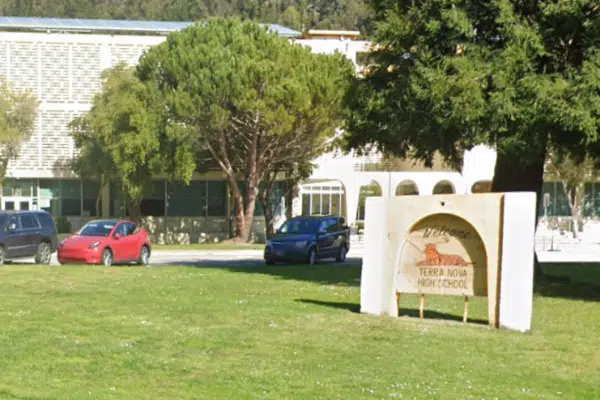
A Terra Nova High School educator was taken into custody on Tuesday following allegations of sexual assault against a student, according to a statement from the Pacifica Police Department (PPD) reported by KRON. Paul Spinetti, 64, who has been teaching wood shop at the school located at 1450 Terra Nova Blvd, Pacifica, CA 94044 since 2015, faces serious accusations involving lewd and lascivious acts with a female student.
Police revealed that the alleged misconduct occurred between October 31, 2024, and November 4, 2024. Spinetti was arrested under a $100,000 warrant and faces charges of lewd acts with a minor and sexual battery. He has been booked into the Maguire Correctional Facility in Redwood City.
Authorities are urging anyone with knowledge of additional incidents involving Spinetti to come forward. Law enforcement officials believe there may be other victims who have yet to report their experiences.
In response to this case, the PPD has shared resources to assist parents in discussing and addressing issues of sexual abuse with their children. Those with information about the case are encouraged to contact the Pacifica Police Department at 650-738-7314 or use the Silent Witness Tip Line at 650-359-4444. Refer to case #24-2878 when providing information.

Victims of sexual abuse by educators and their families often face overwhelming questions about their rights and how to hold those responsible accountable. In an interview with California attorney Jason Amala, an experienced advocate for survivors of sexual abuse, we explore the legal steps available to victims and discuss how schools and institutions can be held liable when negligence contributes to these tragic events.
Editor Darla Medina: For parents or students impacted by abuse in a school setting, what legal rights do they have under California law?
Attorney Jason Amala: Victims of sexual abuse, as well as their families, have the right to seek justice in both the criminal and civil courts. While the criminal process focuses on punishing the perpetrator, the civil system allows victims to pursue compensation for the harm they’ve endured. In California, victims can file lawsuits against not only the individual who committed the abuse but also institutions, such as schools, if negligence played a role in enabling or failing to prevent the abuse.
Medina: Can you explain what makes a school or institution potentially liable in these cases?
Amala: Liability often hinges on whether the school or district knew—or should have known—about the risk posed by an individual like a teacher. If there were prior complaints, warning signs, or failures in screening or supervision, those could establish negligence. Schools have a responsibility to provide a safe environment, and if they breach that duty, they can be held accountable in civil court.
Medina: What steps can parents take if they suspect their child has been a victim of this kind of abuse?
Amala: The first step is to ensure the child’s immediate safety and well-being. Parents should contact law enforcement to report the abuse and cooperate fully with the investigation. From there, consulting with an attorney experienced in sexual abuse cases is important. An attorney can help gather evidence, navigate the legal system, and determine if a civil lawsuit against the abuser or a negligent party, like the school, is appropriate.
Medina: Are there any time limits for filing a civil lawsuit in these situations?
Amala: Yes, California law provides survivors with extended timeframes to file lawsuits. However, timelines can be complex, so it’s always best to act sooner rather than later and consult an attorney to avoid missing any deadlines.
Medina: How can civil lawsuits provide more than just financial compensation to victims and their families?
Amala: Civil lawsuits not only aim to compensate victims for their trauma but also hold negligent institutions accountable, prompting systemic changes to prevent future abuse. For many survivors, the process of seeking accountability can be empowering and help them find closure.
Medina: What advice would you give to parents concerned about protecting their children from similar situations in the future?
Amala: Open communication with your children is key. Encourage them to speak openly about their experiences and teach them to recognize inappropriate behavior. Additionally, parents can advocate for stronger policies and oversight within schools to ensure safeguards are in place. Prevention is a community effort.
If your family has been impacted by sexual abuse involving a teacher, you don’t have to face this alone. Understanding your legal options can make a powerful difference in holding the responsible parties accountable and preventing future harm. Contact us today for a free, confidential consultation to discuss your case and explore the steps you can take to protect your rights.
 info@legalherald.com
info@legalherald.com